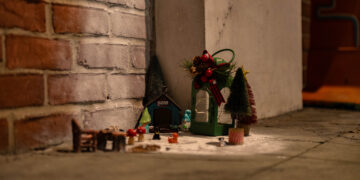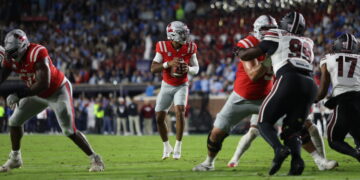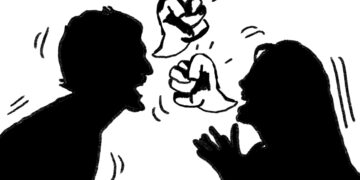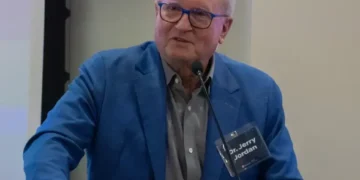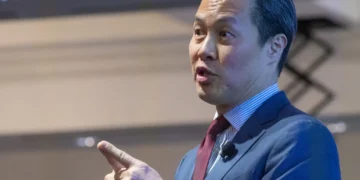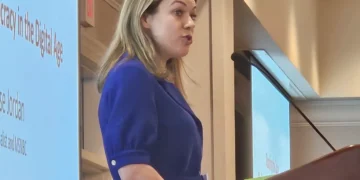In the midst of the Black Lives Matter protests of last year, many people unaffiliated with the organization committed acts of arson and destruction of property. In response, conservatives unleashed a campaign of moral superiority and self-aggrandizement, saying that the right would never riot, that rioters are bad people and that Black Lives Matter only wanted rioting, not justice.
These arguments annoy me to no end, not only because they show a willful disregard to separate the movement and its millions upon millions of peaceful protestors from the rioters, but also because they show a fundamental misunderstanding of what a riot is and why they occur in the first place. Riots are a social response to unrest with the status quo — they are bred out of discontent, and when governments show their citizens there will be no resolution, rioting is often the unavoidable result.
It does not help to apply moral statements to rioting, then, as rioting isn’t as simple as “bad people riot and good people go to protests.” Saying that riots and rioters are bad does nothing to deter riots, and it often does not reflect the movements and goals that often accompany them. To put it simply, in the famous words of Martin Luther King Jr., “a riot is the language of the unheard.” What is frequently unmentioned in that quote, however, is how King later went on to rebuke riots as socially destructive and unproductive — and he isn’t wrong. Riots often cause further problems in communities, especially along racial lines.
In the 1992 Los Angeles riots, which resulted from the acquittal of four police officers involved in the filmed, savage beating of Rodney King, almost half of the 1 billion dollars in damage incurred by the destruction were sustained by Korean-Americans in Los Angeles’ Koreatown. Of course, Los Angeles’ Korean community had nothing to do with the acquittal, but it didn’t matter. The community had reached a breaking point with racist and violent policing, and rioting ensued. Even though the Korean-Americans were harmed by the riots, because of their marginalized status, they were not given assistance or attention. The police completely abandoned them, leaving the Korean-Americans to fend for themselves with guns on the roofs of their shops. As one Korean-American man who survived the rioting said, “Nothing in my life indicated I was a secondary citizen until the LA riots. The LAPD powers that be decided to protect the ‘haves’ and the Korean community did not have any political voice or power. They left us to burn.”
Rioting can be harmful and can drive tensions and barriers between racial communities. Obviously, we should structure our society in a way to mitigate the chances of violent social unrest. While sometimes the way to do that is by acceding to the demands of progressive reformers to create a more equal society, oftentimes, the social unrest represents a much more threatening and much less humane future.
The University of Mississippi riots of 1962 constitute a very dark era in our university’s history, but also an era of triumph for the brave people that desegregated the university. Standouts are people such as James Meredith, who fought against the incredibly hostile and frequently violent and racist community that festered in Mississippi along with many others. As President John F. Kennedy and Mississippi Governor Ross Barnett faced each other down with their armies and armed mobs, 2 people died in the violence, with many more sustaining injuries. After the federal government amassed 31,000 troops to occupy the university, James Meredith finally registered as the first Black student at the University of Mississippi.
I can confidently say that those rioting in this instance are morally bad. They’re lashing out because of social unrest, sure, but the root of their unrest doesn’t lie in marginalization, but in hatred. Riots with roots in marginalization are easy to fix — just stop the harmful and racist policies and structures that caused them to spring up. The whites in Mississippi were not a marginalized and victimized group (although they almost definitely considered themselves to be, as these movements often go). They were rioting to protect their exploitative position at the top of the social order. While rioting should be treated as a social phenomenon to be avoided and prevented, it should be said that there is a distinct difference between rioting stemming from marginalization and rioting stemming from hatred. We can distinctly denounce and make moral judgments against the second.
With the state of our country today and the uncomfortable reality that our day-to-day lives will become increasingly impacted by the realities of climate change, riots are inevitable. Therefore, we must learn that rioting cannot be ascribed to morality. When climate change continues to worsen the conditions of society and creates greater inequities, hopefully, they will learn and understand that rioting is an amoral phenomenon and not a moral failing. Otherwise, they’ll be in for a lot of riots.
Hal Fox is a sophomore majoring in Chinese and international studies from Robert, LA.

